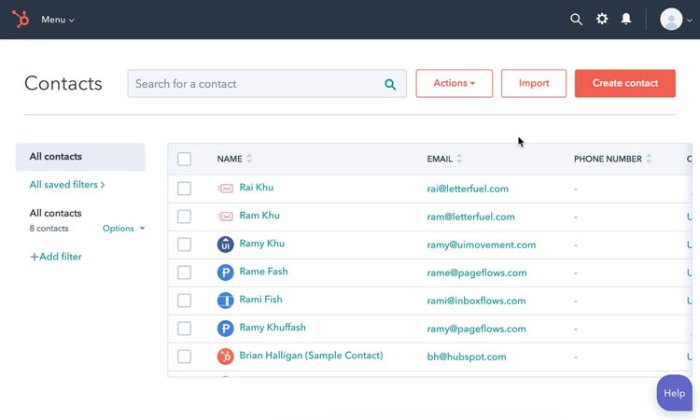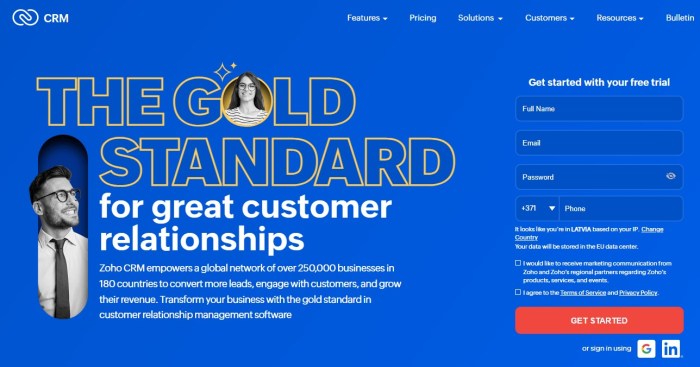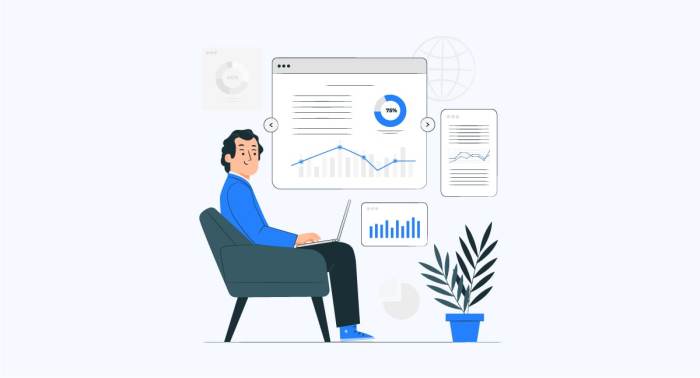In today’s dynamic business environment, efficient project management and robust customer relationship management (CRM) are paramount for success. Choosing the right software to streamline these crucial aspects can significantly impact productivity, profitability, and overall growth. This comprehensive guide explores the best project management and CRM software options, providing detailed insights to help you make an informed decision.

Source: selecthub.com
Understanding Project Management Software
Project management software facilitates planning, execution, monitoring, and completion of projects. Key features typically include task management, scheduling, resource allocation, collaboration tools, and reporting functionalities. Effective project management software enhances team communication, improves efficiency, and minimizes risks associated with project delays or budget overruns. Choosing the right software depends on your team size, project complexity, and specific business needs.
Key Features to Consider in Project Management Software:
- Task Management: Ability to create, assign, and track tasks, subtasks, and dependencies.
- Gantt Charts: Visual representation of project timelines and dependencies.
- Kanban Boards: Visual workflow management for tracking progress in real-time.
- Resource Management: Allocation and tracking of team members and resources.
- Collaboration Tools: Integrated communication features such as chat, file sharing, and video conferencing.
- Reporting and Analytics: Detailed reports on project progress, budget, and resource utilization.
- Integration Capabilities: Seamless integration with other business tools like CRM and communication platforms.
Popular Project Management Software Options:, Best project management and crm software
- Asana: Known for its user-friendly interface and robust task management capabilities. Ideal for teams of all sizes. [ Asana Website ]
- Trello: A visual project management tool using Kanban boards. Excellent for agile methodologies and collaborative projects. [ Trello Website ]
- Monday.com: Highly customizable platform with a wide range of features, suitable for various project management styles. [ Monday.com Website ]
- Jira: Powerful software for agile development teams, known for its issue tracking and workflow management capabilities. [ Jira Website ]
- Microsoft Project: A comprehensive project management solution integrated with the Microsoft ecosystem. [ Microsoft Project Website ]
Understanding CRM Software
Customer Relationship Management (CRM) software helps businesses manage and analyze customer interactions and data throughout the customer lifecycle. This includes lead generation, sales, marketing, and customer service. A well-implemented CRM system improves customer satisfaction, increases sales conversions, and provides valuable insights into customer behavior. Choosing the right CRM depends on the size of your business, the complexity of your sales process, and your specific customer interaction needs.

Source: ecomstrive.com
Key Features to Consider in CRM Software:
- Contact Management: Centralized database for storing and managing customer information.
- Lead Management: Tracking and nurturing leads through the sales pipeline.
- Sales Automation: Automating repetitive tasks such as email marketing and follow-ups.
- Marketing Automation: Automating marketing campaigns and tracking their effectiveness.
- Customer Service Management: Managing customer inquiries and resolving issues efficiently.
- Reporting and Analytics: Generating reports on sales performance, customer behavior, and marketing effectiveness.
- Integration Capabilities: Seamless integration with other business tools like project management software and email marketing platforms.
Popular CRM Software Options:
- Salesforce: A leading CRM platform offering a wide range of features and scalability for businesses of all sizes. [ Salesforce Website ]
- HubSpot: A comprehensive CRM platform with a strong focus on inbound marketing and sales automation. [ HubSpot Website ]
- Zoho CRM: A cost-effective CRM solution with a user-friendly interface and a wide range of features. [ Zoho CRM Website ]
- Microsoft Dynamics 365: A powerful CRM platform integrated with the Microsoft ecosystem. [ Microsoft Dynamics 365 Website ]
- Pipedrive: A sales-focused CRM known for its intuitive interface and ease of use. [ Pipedrive Website ]
Integrating Project Management and CRM Software
Integrating project management and CRM software can significantly enhance business efficiency. This integration allows for seamless data flow between the two systems, providing a holistic view of projects and customer interactions. For example, you can track project progress related to specific customers, manage tasks associated with customer requests, and automatically update customer records with project milestones. This integrated approach improves collaboration, reduces errors, and ensures better customer service.
Choosing the Right Software for Your Business
Selecting the optimal project management and CRM software requires careful consideration of your specific needs and business context. Factors to consider include:
- Budget: Software pricing models vary widely, from subscription-based to one-time purchases.
- Team Size and Structure: Choose software that scales with your team’s growth and organizational structure.
- Project Complexity: Select software with features that address the specific needs of your projects.
- Integration Capabilities: Ensure seamless integration with your existing business tools.
- User-Friendliness: Choose software with an intuitive interface that is easy for your team to learn and use.
- Scalability: Ensure the software can adapt to your business’s future growth and changing needs.
Frequently Asked Questions (FAQ): Best Project Management And Crm Software
- Q: What is the difference between project management and CRM software?
A: Project management software focuses on planning, executing, and monitoring projects, while CRM software manages customer interactions and data throughout the customer lifecycle. - Q: Can project management and CRM software be integrated?
A: Yes, integrating these systems enhances efficiency by providing a holistic view of projects and customer interactions. - Q: How much does project management and CRM software cost?
A: Costs vary significantly depending on the software, features, and number of users. Some offer free plans, while others have subscription-based pricing. - Q: Which software is best for small businesses?
A: For small businesses, user-friendly options like Asana (project management) and Zoho CRM (CRM) are often good starting points. - Q: What are the key benefits of using project management and CRM software?
A: Key benefits include improved team collaboration, increased efficiency, better customer service, enhanced sales conversions, and valuable data-driven insights.
Conclusion
Selecting the right project management and CRM software is a crucial decision for any business. By carefully considering your specific needs and evaluating the features of different platforms, you can find the ideal solution to streamline your operations, enhance customer relationships, and drive business growth. Remember to prioritize user-friendliness, scalability, and integration capabilities for long-term success.
Call to Action
Ready to optimize your project management and customer relationships? Explore the software options discussed above and choose the best fit for your business. Start your free trial today and experience the benefits of streamlined workflows and improved customer engagement!

Source: softwaresuggest.com
Frequently Asked Questions
What is the difference between project management and CRM software?
Project management software focuses on planning, executing, and monitoring projects. CRM software manages customer interactions and data. Integrated solutions combine both.
How much does this type of software typically cost?
Pricing varies greatly depending on features, user numbers, and vendor. Expect a range from free options with limited functionality to thousands of dollars per month for enterprise-level solutions.
What are some key features to look for?
Essential features include task management, scheduling, reporting, contact management, sales pipeline tracking, and integration with other business tools.
How can I ensure data security with this software?
Choose vendors with robust security measures, including data encryption, access controls, and regular security audits. Review their privacy policies carefully.
What is the best way to implement this type of software?
Start with a thorough needs assessment, select a vendor, and then plan a phased rollout with adequate training for your team. Consider using a phased approach for optimal adoption.
